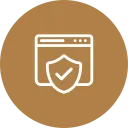Tired of Feeling Confused by Medical Info Online?
You Deserve to Know What’s Real and What’s Not.
Because “Google it” shouldn’t be your only option when your baby’s health is on the line.
You just want to make the best decisions for your pregnancy, birth, or postpartum experience.
But the moment you start looking for answers online, it’s like falling down a rabbit hole: contradictory advice, alarming headlines, and opinionated strangers shouting over each other in Facebook groups.

You’re not alone if you’ve ever thought:
“Is this article actually legit, or is someone just trying to sell me something?”
How do I know if this study means anything for me?”
“Why do doctors and doulas sometimes give such different advice?”
If you've ever wished for a simple way to tell fact from fiction, without needing a medical degree, you’re in the right place.
It’s packed with practical tools you’ll actually use
Imagine feeling confident every time you read a health article.
Imagine knowing exactly how to spot reliable research, ignore fear-based nonsense, and advocate for your care with evidence in your back pocket.
Here’s what’s possible when you can decode medical studies like a pro:
You trust yourself to make informed, empowered choices.
You communicate clearly with your provider, without feeling intimidated.
You avoid overwhelm and anxiety from clickbait “health advice.”
You model critical thinking for your family and community.
This isn’t about becoming an expert. It’s about owning your power as a parent and decision-maker.

Get the “Size Matters” guide sent straight to your inbox.
No fluff. No fear tactics. Just facts you can trust.
If you’ve tried to do your own research before you’ve probably hit a few roadblocks :

You don’t know which websites are actually trustworthy

Medical jargon feels impossible to understand.

Every study seems to contradict the last.
And let’s be real, you’re busy, probably exhausted, and the last thing you need is another “miracle cure” being pushed on you by someone with an agenda.
It’s no wonder most parents either give up or default to advice that doesn’t sit right. You deserve better.
That’s exactly why I created “Size Matters: Deciphering Medical Studies and Fact from Fiction.”
This isn’t just another guide, it’s a step-by-step resource that teaches you:

Where to find evidence-based info (and where to avoid).

How to know if a study is actually relevant to you and your baby.

What all those “levels of evidence” mean, and how to spot red flags.

How to cross-check information quickly, without spiraling into research overload.

When to trust your gut, and when to dig deeper.
This isn’t about telling you what to think. It’s about showing you how to think critically in a noisy, confusing world.
You’ll walk away with confidence clarity, and tools you can use for the rest of your parenting journey.

Make informed decisions about your care, without the stress spiral.
Advocate for yourself and your family with facts (and calm confidence).
Spot misinformation instantly and avoid falling for fear-based advice.
Feel grounded, not overwhelmed, when doing your own research.